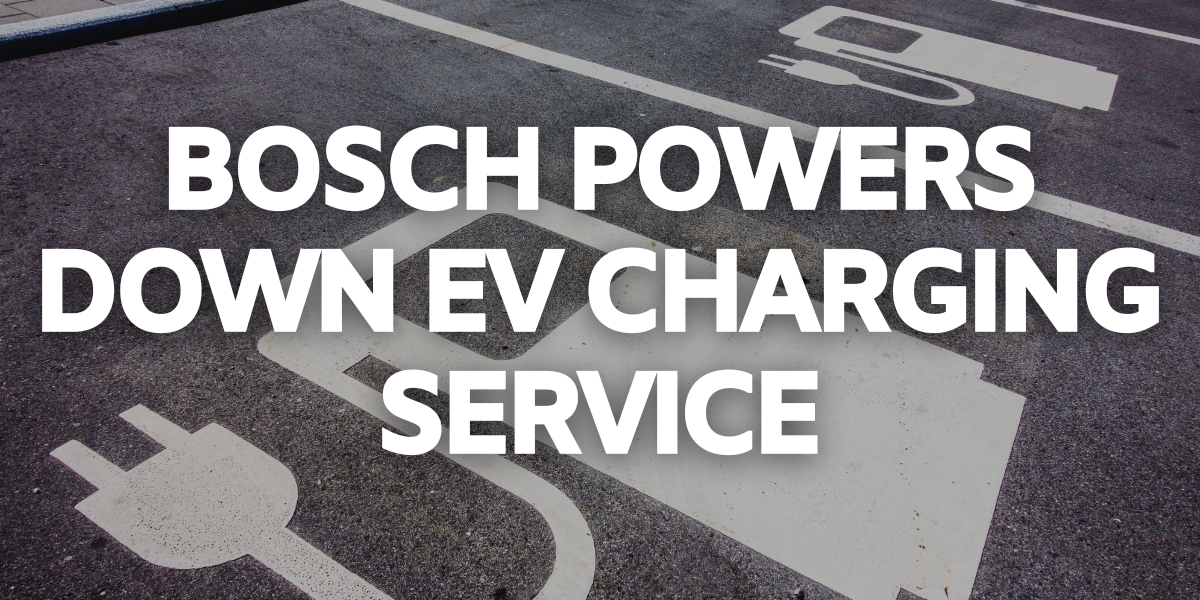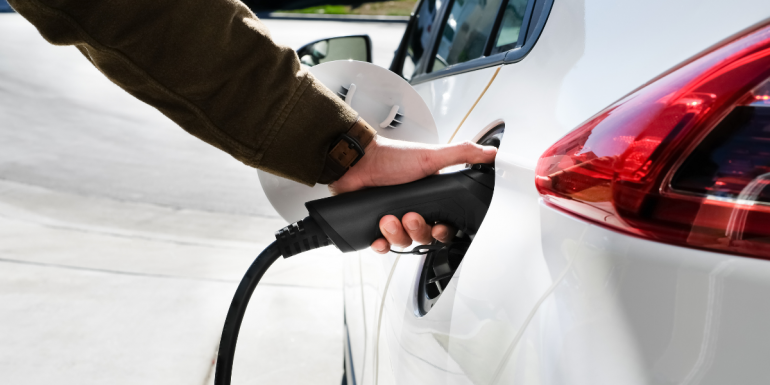
Fully Charged? Not for Long – Bosch Powers Down EV Charging Service
Bosch has announced it will officially end all of its electric vehicle charging services as of June 30, 2025, marking a significant retreat from the EV infrastructure space.
In an email that was sent to customers, the decision comes as the company acknowledges the EV market remains “highly competitive and far behind expected growth.”
Despite the global push toward electrification, Bosch stated that continued investment in its charging services was no longer commercially viable. It’s a major shift that will impact not just end users, but also a range of manufacturers and app partners who integrated Bosch’s charging platform into their ecosystems.
Why Bosch Is Pulling Out
Bosch had positioned itself as a technology backbone for various EV charging services, handling everything from backend charging infrastructure and station data, to RFID management and remote activation through third-party apps. But the market, it seems, didn’t scale at the pace needed.
With intense competition from dedicated charging networks and mobility tech startups, Bosch found itself squeezed between low margins, high expectations, and sluggish market expansion. The company framed the decision as a strategic refocus, opting to exit EV charging services altogether rather than continuing in a space that wasn’t yielding sufficient returns.
What This Means for Partner Platforms
The end of Bosch’s charging services affects multiple automotive brands and EV apps that relied on the company’s backend systems. One such example is the “Lotus Cars” app, which currently uses Bosch technology to help EV drivers locate chargers, filter by availability, start sessions remotely, and track past usage.
From June 30, 2025, these functions will no longer work in any app powered by Bosch’s charging network. For users, this means:
- The loss of map-based charging point discovery
- The inability to start charging remotely through their app
- Removal of charging history and session records
- Deactivation of Bosch-issued RFID cards
In all cases, app interfaces and user accounts will remain in place, but without Bosch’s service backbone, they will lose significant charging functionality, unless an alternative provider is introduced.
But it doesn’t mean that it’s all doom and gloom, as you don’t always need to rely on stations to have a ca fuled up, what if we mentioned we have a product that can add a little bit of battery juice?
This is where we showcase our Solar Master GEN-2400 ‘Atlas’ Portable Power Station, which has the functionality to supply an additional 12 extra miles (based on 5.08 miles per kWh). It’s not a full-time solution, but the option is there for a worst-case scenario.
RFID Cards to Be Decommissioned
As part of the shutdown, Bosch will also deactivate all RFID cards linked to its network. These cards, used by drivers to initiate charging sessions at compatible stations, will stop functioning after the June cutoff date.
Users are encouraged to dispose of their RFID cards responsibly. Options include physically destroying the card and dropping it off at a local electronics recycling point, or posting it – at the user’s own expense, back to: Plasticard-ZFT GmbH & Co. KG, Reisewitzer Str. 82, 01159 Dresden, Germany.
What Happens Next?
Bosch has made clear that this is a full-scale withdrawal – not a restructuring or a pivot. No new partnerships are expected to emerge from within the company, and no successor platform has been announced from Bosch’s side. It’s now up to automakers and app developers to source alternative providers or build in-house solutions.
Some manufacturers may already be in discussions to secure new partners, but users should expect a transition period that may result in temporary service gaps. In the meantime, affected EV drivers are advised to explore standalone charging apps or RFID solutions available in their region.
Final Thoughts
Bosch’s exit from the EV charging space is a reminder of just how competitive and complex the mobility tech landscape has become. While the decision marks the end of an era for one of the world’s largest tech suppliers, it also signals a possible shakeup in how automakers approach digital infrastructure.
As June 2025 approaches, more platforms will likely announce their transition plans but for now, users dependent on Bosch’s services should prepare for changes, and start looking at alternative ways to stay powered on the road but also may experience another blow with rumours of phone service provider giants Vodaphone also looking to remove themselves with from the EV charging service market.

